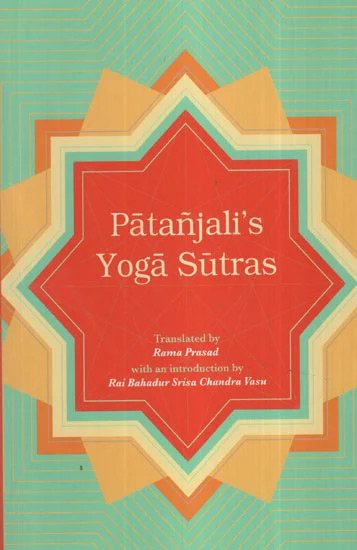Yoga-sutras (with Vyasa and Vachaspati Mishra)
by Rama Prasada | 1924 | 154,800 words | ISBN-10: 9381406863 | ISBN-13: 9789381406861
The Yoga-Sutra 1.38, English translation with Commentaries. The Yoga Sutras are an ancient collection of Sanskrit texts dating from 500 BCE dealing with Yoga and Meditation in four books. It deals with topics such as Samadhi (meditative absorption), Sadhana (Yoga practice), Vibhuti (powers or Siddhis), Kaivaly (isolation) and Moksha (liberation).
Sūtra 1.38
Sanskrit text, Unicode transliteration and English translation of Sūtra 1.38:
स्वप्ननिद्राज्ञानालम्बनं वा ॥ १.३८ ॥
svapnanidrājñānālambanaṃ vā || 1.38 ||
svapna—of dream. nidrā—of deep sleep, sleeps. jñāna—the knowledge study. ālambanam—taking for its objects, resorting to, meditating on. vā—or.
38. Or, having the knowledge of dream and sleep as its object of study.
The Sankhya-pravachana commentary of Vyasa
[English translation of the 7th century commentary by Vyāsa called the Sāṅkhya-pravacana, Vyāsabhāṣya or Yogabhāṣya]
[Sanskrit text for commentary available]
By making the knowledge of dreams and the knowledge of sleep an object of study, the mind of the Yogī determines towards the shape and attains the position of steadiness.—38.
The Gloss of Vachaspati Mishra
[English translation of the 9th century Tattvavaiśāradī by Vācaspatimiśra]
When the time comes that this Yogī, in his dream state, worships the Lord Maheśvara’s form, enrapturing the mind by its beauty, placed in a secluded spot of some lonely forest, appearing as if arising out of the sphere of the light of the moon, the limbs large and small of the shape appearing as soft as the stalks of the lotus, the form seen as if made of shining moon-stones, encircled with garlands of sweet-smelling Mālatī and Mallikā; then on awakening he is full of elation, and then remembering the same form which was the object of dream consciousness, his mind determines towards the unity of that one form and attains the position of steadiness.
The sleep to be understood here is the one in which the light of the quality of essentiality appears. (This is the sāttvic sleep). It is the same, on awakening from which the remembrance is, ‘I have slept pleasurably.’ This explains that the mind in that state becomes one-pointed. It is this that the knowers of Brahma define to be of the nature of Brahma (Brahmarūpa).
In the dream state it is not possible to bring mere knowledge without an object, within the range; therefore, the object also is brought within the range.—38.
